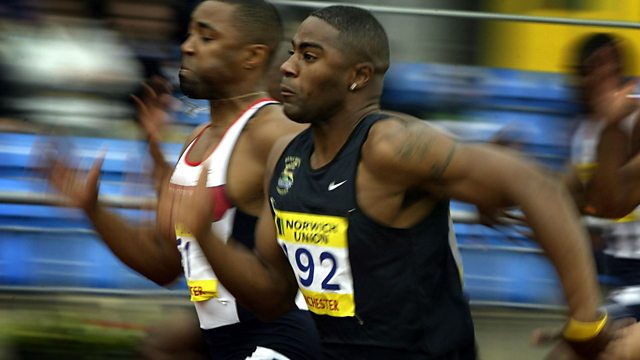Lewis-Francis says athletes can 'easily' miss drugs tests
Sprinter Mark Lewis-Francis claims athletes can "easily" miss drug tests although a UK Anti-Doping official says to do so twice is "unusual".
Sprinter Mark Lewis-Francis claims athletes can "easily" miss drug tests although a UK Anti-Doping official says to do so twice is "unusual".
Great Britain team-mate Mo Farah missed two tests before he went on to become a gold medallist in both the 5,000m and 10,000m at the 2012 Olympics.
Lewis-Francis has also missed two tests in his career and says it's not a big issue.
"There's nothing to feel guilty for. It very easily happens," he said.
"People need to look at it from the athletes point of view. I'm a clean athlete and for me it was just I made mistakes.
"It's no big deal really and if we do miss it three times we will get a ban."
Farah, 32, says he has never taken performance enhancing drugs following doping allegations were made against his coach Alberto Salazar.
A ����ý investigation reported allegations that Salazar had practised doping techniques with US athlete Galen Rupp. The ����ý documentary made no suggestion that Farah had been involved in doping. Salazar also denies the claims levelled against him.
Farah said in a statement on his Facebook page that he "fully explained" himself to the authorities on the two occasions he missed tests.
UK Anti-Doping director of legal Graham Arthur, who was not speaking specifically about Farah, acknowledged it was not a regular occurrence for an athlete to miss two tests.
"It is unusual compared to the aggregate number of tests commissioned," Arthur said. "It's not unheard of. It doesn't happen very often but it does happen.
"The rules now are more slightly favourable to athletes than they used to be.
"The old rule was three missed tests in 18 months now it's now three missed tests in 12 months so the year."
Lewis-Francis missed one test because a door bell in rented accommodation did not work and "it wasn't my house so it wasn't my place to change it".
The other was when he was out of the country at his scheduled testing time.
The 32-year-old, who won Olympic gold in the 4x100m relay at the 2004 Games in Athens, believes athletes in Great Britain are very closely scrutinised.
"Athletes are tested regularly in the UK and are one of the best in the world for testing. It's one of the tightest systems in the world," he added.
"Both times I missed them were my fault because you are responsible for your slot time.
"The public may look it and think what he is up to? We must remember athletes have a biological passport and tested on a regular basis."
This clip is originally from Sportsweek 21 June 2015
Duration:
This clip is from
Featured in...
![]()
News archive—5 Live In Short
The best current affairs interviews, insight and analysis from ����ý Radio 5 live.
![]()
Sport—5 Live In Short
The best of 5 live's sport coverage, insight and analysis
More clips from 5 Live In Short
-
![]()
What would it be like having the King eating at your restaurant?
Duration: 01:05
-
![]()
‘It gives me a purpose’
Duration: 01:08
-
![]()
‘If we get the early years right, the rest takes care of itself’
Duration: 00:50
-
![]()
World Champion given permission to whistle in Burlington Arcade
Duration: 01:01








